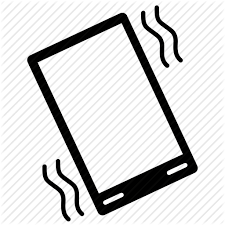vibrate
英 [vaɪˈbreɪt]
美 [ˈvaɪ.breɪt]
- vi. 振动;颤动;摇摆;踌躇
- vt. 使振动;使颤动
使用频率:

中文词源
vibrate 颤动
来自拉丁语vibrare,前后移动,颤动,来自PIE*weip,转,摇摆,来自PIE*wei的扩大形式,词源同wipe,wire.
英语词源
- vibrate
-
vibrate: [17] Vibrate comes from Latin vibrāre ‘move quickly to and fro, shake’. This went back ultimately to a prehistoric Indo-European base *wib-, *weib- ‘move quickly to and fro’, which also produced English weave ‘move to and fro’ (as in ‘weave through the traffic’), whip, and wipe.
=> weave, whip, wipe - vibrate (v.)
- 1610s (intransitive) "move to and fro;" 1660s, "swing to and fro;" from Latin vibratus, past participle of vibrare "set in tremulous motion, move quickly to and fro, quiver, tremble, shake," from PIE *wib-ro-, from root *weip- "to turn, vacillate, tremble ecstatically, move quickly to and fro" (cognates: Lithuanian wyburiu "to wag" (the tail), Danish vippe, Dutch wippen "to swing," Old English wipan "to wipe"). Transitive sense "cause to vibrate" is from c. 1700. Related: Vibrated; vibrating.
权威例句
- 1. The rough road made the car vibrate.
- 坑坑洼洼的道路使车颠得厉害.
- 2. "Opium" is a provocative, sensual, and voluptuous fragrance which makes all your senses vibrate.
- “鸦片”是一种刺激性的、能引起感官快感的香料,能使你所有的感官兴奋起来。
- 3. It's important to tighten up the wheels properly, otherwise they vibrate loose and fall off.
- 把轮子拧紧是很重要的,否则它们会因振动松动、脱落。
- 4. The ear has a set of filaments to vibrate in resonance with incoming sound-waves.
- 耳朵里有一组细丝能和进入的声波产生共振。
- 5. The ground shook and the cliffs seemed to vibrate.
- 大地在摇晃,悬崖好像在颤动。